#Islam Religion of Ethics
Text
THEOLOGY
ABRAHAMIC RELIGIONS ->
THE THREE MAJOR ABRAHAMIC RELIGIONS are, in order of appearance, JUDAISM, CHRISTIANITY, and ISLAM, but there are other MINOR RELIGIONS.
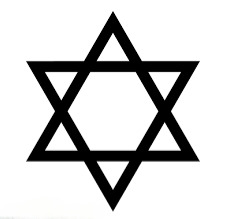
■JUDAISM is an Abrahamic monotheistic religion based on the covenant shared between God and Abraham.
The holy scriptures of JUDAISM are called the TANAKH, after the first letters of its three parts in the Jewish tradition. T: TORAH, the Teaching of Moses, the first five books. N: NEVI'IM, the books of the prophets. KH: KETUVIM, for the Writings, which include the psalms and literature for the wise.
ORTHODOX JUDAISM is the belief in a strict interpretation of Jewish law, which should be grounded in the Torah. As such, the revelation given to Moses from God on Mount Sinai is made glorious and just.
CONSERVATIVE JUDAISM is the belief in marriage and membership as a Jew. Other characteristics will include support of the Zionist movement and the rejection of the immutability of the "Torah" and the "Talmud" while still having faith in the eternal truth upon which it is based.
REFORM JUDAISM is the belief of the renewal in our living Covenant with God, the people of Israel, humankind, and the earth by acknowledging the holiness present throughout creation – in ourself, in each other, and in the world at large – through practice that will include reflection, study, worship, ritual, and much more.

■CHRISTIANITY is an Abrahamic monotheistic religion centered around the birth, life, death and resurrection of Jesus Christ.
THE BIBLE is the holy scripture of the Christian religion, purporting to tell the history of the Earth from its earliest creation to the spread of Christianity in the first century A.D. Both the Old Testament and the New Testament have undergone changes over the centuries.
□ROMAN CATHOLICISM
Roman catholicism is a branch of Christianity which has its belief about the sacraments, the role of the Bible and tradition, the importance of the Virgin Mary and the saints, and the papacy.
HISTORY OF THE REFORMATION
THE REFORMATION was a reform movement in religious belief that swept through Europe in the 16th century. It caused the creation of a branch of Christianity called PROTESTANTISM, a name used collectively to refer to the many religious groups that separated from the Roman Catholic Church due to their difference in doctrine.
□PROTESTANTISM
Protestantism is a branch of Christianity which will deny the universal authority of the Pope and affirm all of the Reformation principles of justification by faith alone, the priesthood available to any practitioner, and the Bible as the only source of revealed truth.
□QUAKERISM
Quakerism is a branch of Protestantism
Follow your "inner light"
The Bible
Equality for all
God is accessible to everyone
No clergy
No religious ceremonies
No sacraments
LOCATION -> England
WHEN -> 17th Century
Adventism
Anglicanism
Anabaptism
Baptism
Irvingianism
Lutheranism
Methodism
Moravianism
Pentecostalism
Waldensianism
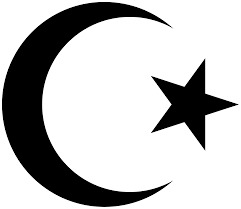
■ISLAM is an Abrahamic monotheistic religion that was revealed to Muhammad, a prophet of Allah, and written down in the Qur'an years later by his followers.
SUNNI
Muhammad did not specifically appoint a successor to lead the Ummah before his death. This sect did, however, approve of the private election of the first companion, Abū Bakr. In addition to the previous mentioned, Umar ibn al-Khaṭṭāb, ʿUthmān ibn ʿAffān, and ʿAlī ibn Abī Ṭālib are also accepted as al-Khulafāʾ ur-Rāshidūn. After this, they believe that Muhammad intended that the Muslim community choose a successor, or caliph, by consensus. A practitioner of this sect will base their religion on the Quran and the Sunnah as understood by the majority of the community under the structure of the four schools of thought. These are HANAFI, MALIKI, SHAFI'I and the HANBALI.
SHI'A
Muhammad's family, the Ahl al-Bayt, including all of his descendants, have distinguished spiritual and political authority over the community. It is believed that Alī ibn Abī Ṭālib was the first of these descendants and the rightful successor to Muhammad. As a result, it was rejected that the first three Rāshidūn caliphs have legitimacy.
------------------------------------------
ETHICAL RELIGIONS ->
THE THREE MAJOR ETHICAL RELIGIONS are BUDDHISM, TAOISM, AND CONFUCIANISM.
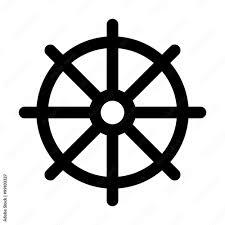
■BUDDHISM is an ethical religion that was revealed by Siddhartha Gautama for anyone to gain spiritual enlightenment if that person followed the eight-folded path along with a personal commitment to any noble truth given to him/her through the journey of life in order to reach nirvana.
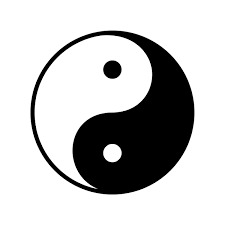
■TAOISM
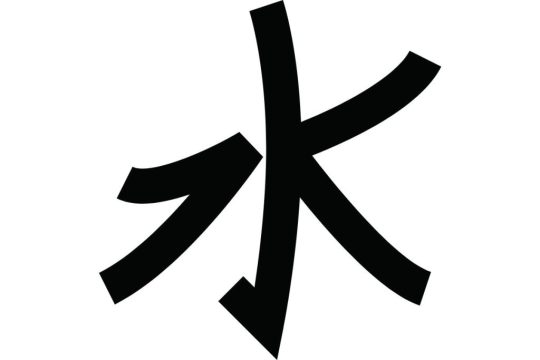
■CONFUCIANISM
15 notes
·
View notes
Link
By: Yasmin Mohammed
Published: Sep 30, 2017
At the age of six, I bolted out the front doors of my elementary school and ran to give my first-grade teacher a goodbye hug. As I skipped towards my mother, my bubbly mood was snatched away by her stern voice and admonishing stare.
“Did you just hug your teacher?” my mother asked.
“Yah, I love Mrs. Roth!”
“You do not hug non-Muslims! That is disgusting,” she said.
She then marched me over to the principal’s office to demand that Mrs. Roth never touch her child again. I sat in the chair listening to them, confused and embarrassed. I didn’t understand what I did wrong.
The next day, as all the children filed out of class, some would wrap their arms around Mrs. Roth’s middle, but her arms remained at her sides. The children asked why she wasn’t hugging them back, but she didn’t expose me. She just told them that she couldn’t anymore. It was a new rule. I hung my head and avoided her gaze as I sheepishly walked out of the classroom. Such a positive, loving, comforting aspect of my day was not only snatched from me, but from all the children in the class — and from my teacher.
That was the first time that I learned that I was an ‘other’. That I was a Muslim, that I lived among non-Muslims and that I could never get too comfortable around the non-believers. Unlike my Egyptian-born mother, I was born in Canada. I didn’t accept that ‘non-believers’ were evil and deserved Allah’s wrath. I didn’t want to strike off their heads or their fingertips, as Allah commands.
‘Non-believers’ were nice to me. They were my friends. My teachers weren’t Muslim, but they were kind and loving. What I was being taught at home contradicted the reality I was witnessing.
But my mother and her husband (she was his second concurrent wife) were far-right, conservative Muslims. They forced me to abide by their beliefs. Fearing both the wrath of my mother and the wrath of Allah, I did as I was told.
When I was 19, I had to wear a niqab (burka) and was forced into an arranged marriage. He was an Egyptian man who entered Canada from Afghanistan using a fake Saudi Arabian passport. Pre-9/11, those red flags weren’t enough for authorities to keep him out. He was even offered refugee status.
Years later, after I had had given birth to a daughter, I was contacted by the Canadian CIA (CSIS) and I learned that my husband, Essam Marzouk, was an Al Qaeda operative serving as Osama bin Laden’s point of contact. Soon after, I escaped from him, my family, and eventually left the religion into which I was born.
I ran away from the religious far-right world in which I was raised, and I made my way left towards values that I embraced like gender equality, free speech and LGBT rights.
All these values felt correct to me. They fit with me. I finally felt comfortable. I no longer had a constant internal struggle between left and right brewing inside of me.
Now, try to imagine the shock, betrayal and sadness I feel seeing fellow liberals celebrating right-wing, conservative aspects of Islam. On February 1, I was so upset over World Hijab Day that I spent the day in bed with a migraine. Hijab Day? Would it make sense to have Wings Day to celebrate the garment that women in ‘The Handmaid’s Tale’ are forced to wear? Is there a Mormon underwear day? What about a chastity belt day? I risked my life, and my daughter’s life, to escape from the darkness into the light — only to find the light celebrating and fetishising darkness.
When you celebrate the hijab by plastering it all over catwalks, and the Women’s March, Playboy, Elle, Vogue and Nike, you are celebrating a symbol of a far-right ideology, whether you know it or not. Muslims come from hundreds of different countries with hundreds of different cultures and hundreds of different traditional clothing styles.
The hijab is not worn by non-Muslim Egyptians, Iraqis, Indonesians, Pakistanis or Somalis. It is worn by conservative Muslims from those countries. If I want to celebrate Italians, I will not make a Pope Hat Day or a Nun’s Habit Day. These are religious symbols. The hijab confuses Americans. They seem to think that it is a ‘cultural’ clothing — no. It is religious. As religious as a kippah or an Amish bonnet.
Americans also seem to have trouble distinguishing Muslims as people from Islam as a religion. For liberals, celebrating and honouring people is to be applauded, celebrating and honouring religions is not. We do not celebrate and honour conservative Christianity or Orthodox Judaism. Why do we celebrate fundamentalist Islam?
When Palestinian-American activist Linda Sarsour drew criticism earlier this year for supporting Sharia, former Democratic presidential candidate Bernie Sanders jumped to her support. Sharia, a barbaric and socially right-wing conservative set of laws, was defended by the most progressive political leader in the United States. That moment illustrated the absolute absurdity of this confusion.
Sanders supporting Sarsour made as much sense as him jumping to support disgraced Christian personality Josh Duggar or devout Mormon Mitt Romney. But it’s indicative of a broader problem among my fellow liberals. Their hearts may be in the right place, but their brains are not. ‘Intersectionalism’ has caused their brains to misfire. Many reflexively defend conservative theocrats like Sarsour because she has brown skin and a scarf on her head. But a person’s values cannot be identified by their skin color.
As a Sharia supporter who has expressed her to desire to inflict violence on women she disagrees with, Sarsour is much more right-wing than either Duggar or Romney. The left is engaging in the kind of bigotry it is supposed to oppose – judging people based on the color of their skin rather than the content of their character.
Liberal Americans come in every hue of skin and from every religious background. But we must choose our allies based on their ideas and not their identities. If liberals want to include Muslims, by all means, please do, but first ensure that those Muslims are actually liberals. Sarsour is not. She represents the minority of devout hijab-wearing conservative Muslim women in America.
How can a person who claims to be a liberal also support Sharia? Islamic law demands death for gays and lesbians, for people who leave Islam, forbids women from traveling without a male guardian’s permission. You want to know what life is like under Sharia? Look to Saudi Arabia and Iran, two of the most illiberal counties imaginable.
In the left’s zeal to support minorities, it inadvertently supports conservative religious values, but only those of one faith. Our alliances should be rooted in shared goals and values for society.
Too often, left-wing Americans make their decisions based on just doing the opposite of the right-wing. Right wing loves Christianity? We oppose it! Right wing hates Islam? We love it! This shallow reactive behaviour lacks any critical thought. As George Orwell said: “The truth becomes untruth if uttered by your enemy.” As opposed to just reacting, all Americans should take a step back and think about each situation critically. Sometimes the lunacy is glaring.
Can we imagine a liberal march that uses Mormon underwear as an icon? Or a nun’s habit? Of course not. But the Women’s March made a point of using the hijab as one of its images. That’s an example of glaring lunacy.
Walking from the religious right to the political left, I gave up the idea of judging people based on their identities. I was shocked to find that attitude thriving just as strongly on the American left as on the Islamic right. As much as I love liberal values, risking my life to live by them, I cannot abide by the identity politics that has possessed my fellow liberals.
Today, I fight back tears of joy as I watch my six-year-old daughter run to hug her teacher in the mornings. I escaped from the hate on the right and I will never join the hate on the left. My daughter will never hear words of hate from me, and she will never utter words of hate to her children. The cycle of hate ends here.
-
Yasmine Mohammed is a Canadian citizen of an Arab background. She has written a memoir about her journey out of Islam, ‘Some of my best friends are Jewish, and other confessions of an ex-Muslim’.
She endured decades of physical and mental torture. She was forced into a marriage with a member of Al Qaeda, after he was bailed out of prison by Osama bin Laden himself. She wore a niqab, and lived in a home/prison with paper covering all the windows. Yet, somehow, with nothing but a high school diploma and a baby in tow, she got out.
==
February 1 is No Hijab Day.
#Yasmine Mohammed#No Hijab Day#NoHijabDay#World Hijab Day#free from hijab#islam#hijab#conservative islam#fundamentalist islam#liberalism#liberal ethics#identity politics#sharia#sharia law#Linda Sarsour#religion#religion is a mental illness
58 notes
·
View notes
Text
it's like white privilege. you don't opt out of it. it's a way of discussing systems of power, it's not a personal attack. does cultural christianity also make you stupid or something?
#do you have a protestant work ethic? ok so where do you think you got it#i think you have to study judaism to understand just how fucked up christianity is#idk about islam or other religious world views but i didn't see how bad christianity truly is until i learned about judaism#for example... prostelyzation. you might assume ''they're saying that bc they want to convert me'' nah bud that's a christian thing#i'm not saying judaism is better (imo it is but that's just my opinion) but it's genuinely enriching to see a DIFFERENT world view#wrt forgiveness. charity. the afterlife. all that stuff. it's just different#like i think it could be healing for ex christians to learn but unfortch they're so traumatized by christianity they think it=all religion#the assumption that all religion is gonna be Like That is part of cultural christianity i think!!#i'm an atheist too i promise i'm not trying to convert you. again that is not the goal of judaism.#like learn any other world view besides christian. i just say jewish bc it's what *i've* learned & *i* found it helpful but ymmv#being informed & educated doesn't mean you have to believe it. it just make brain grow to eat more knowledge
9 notes
·
View notes
Photo

https://pubmed.ncbi.nlm.nih.gov/26549259/
Abstract
“Prosocial behaviors are ubiquitous across societies. They emerge early in ontogeny and are shaped by interactions between genes and culture. Over the course of middle childhood, sharing approaches equality in distribution. Since 5.8 billion humans, representing 84% of the worldwide population, identify as religious, religion is arguably one prevalent facet of culture that influences the development and expression of prosociality. While it is generally accepted that religion contours people's moral judgments and prosocial behavior, the relation between religiosity and morality is a contentious one. Here, we assessed altruism and third-party evaluation of scenarios depicting interpersonal harm in 1,170 children aged between 5 and 12 years in six countries (Canada, China, Jordan, Turkey, USA, and South Africa), the religiousness of their household, and parent-reported child empathy and sensitivity to justice. Across all countries, parents in religious households reported that their children expressed more empathy and sensitivity for justice in everyday life than non-religious parents. However, religiousness was inversely predictive of children's altruism and positively correlated with their punitive tendencies. Together these results reveal the similarity across countries in how religion negatively influences children's altruism, challenging the view that religiosity facilitates prosocial behavior.”
------------
N.b., I haven’t followed up on responses to this study. I.e., I don’t know if the method and results have withstood subsequent scrutiny.
But, if subsequent commentary largely leaves these results intact, then this study strikes me as having revolutionary consequences for how we view children’s development, moral psychology, parenting practice and the status of religion generally in the world.
For me the upshot would be: It’s morally urgent to either push for the die-off of Christianity and Islam (and others), or to identify those aspects of religious belief and practice that are harmful to the moral development of children. But if the latter, what you’re most likely doing is arguing for the liberalization and secularization of faith. And if it is indeed these tendencies of any religion -their more liberal and secular expressions - that are less harmful to children’s moral psychology, then why not push the eradication of these religions tout court.
Here are some bar graphs from the paper:
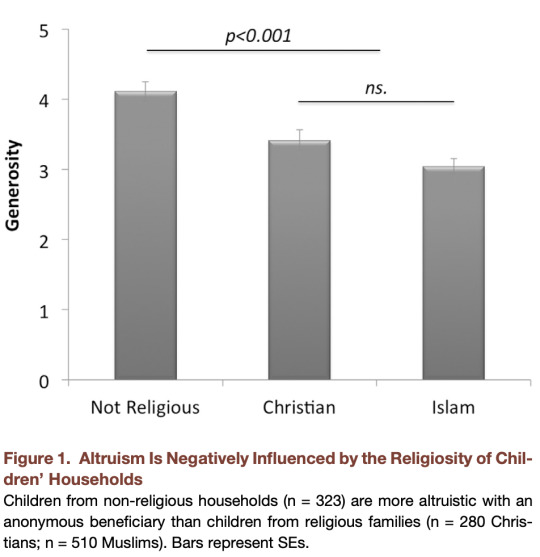
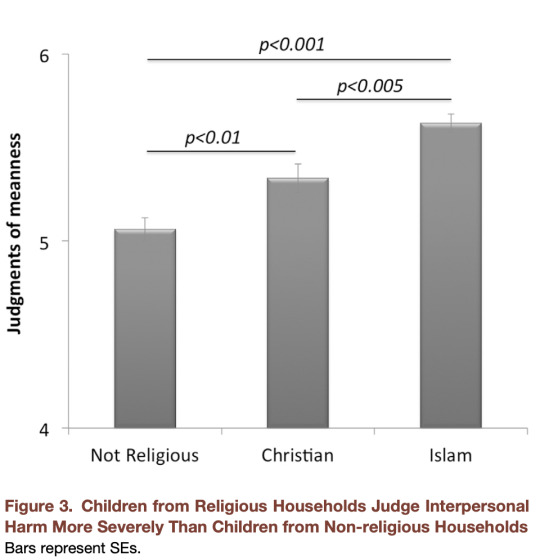
Do we want a more tolerant and ethical world? Then we may have to face the reality that the abolition of traditional forms of religion is a pressing moral task.
#religion#christianity#islam#atheism#agnosticism#secularization#sociology of religion#morality#ethics#children#child development#moral development#developmental psychology
7 notes
·
View notes
Text
What if Your Values Are Evil?
You hear some people talking about values, you hear it in the terms “value voter,” and “traditional values”. What these people never ask is “what if my values are wrong”. So many never questions whether their values are good, bad, or evil. People just accept the values they were raised or indoctrinated into with out question or doubt. But the truth is: values can be evil, your values can be evil,…
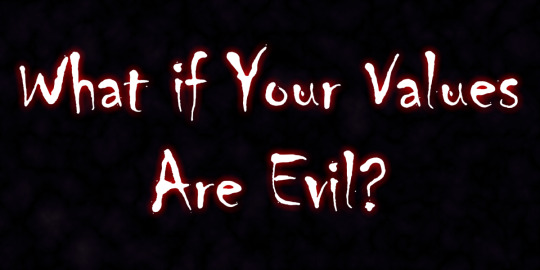
View On WordPress
#christianity#conservatism#cultural lies#culture#ethics#evil#good#islam#moral philosophy#morality#philosophy#politics#religion#value voter#values
0 notes
Text
#gays#gay#hi#hihi#god#religion#Christianity#islam#heheeherhe#its not gay with socks on#lol#debate#ethical#nerd#surgery#bleh#hey#heya#ilikethistag#herhergergehehdhdsjs#i support#i dont support#erm#erm avtually#erm anyways#san fransico#h
0 notes
Text
How can a creation be prideful before their Creator? Where is logic in that? Weren't They that formed you? If you think you are wonderful then you should praise Them! Or maybe you think you became better than God..
#truth#wisdom#life quote#psychology#humanity#morality#life#ethics#god#religion#abrahamic religions#monotheism#islam#christianity
1 note
·
View note
Text
Whenever the prophet visited a person, he would first greet him and take his permission to enter the house. He advised the people to follow this etiquette and not to get annoyed if anyone refused to give permission, for it is quite likely that the person concerned was busy and did not mean any disrespect.
Regarding taking permission to enter someone’s house, Abu Musa Al-Ash‘ary, the companion, reported that the prophet said, “When any of you seeks permission (i.e. knocks on someone else’s door) three times and he does not receive any response, he should leave and come back later on.” [Recorded by Muslim].
Anas reported that the Prophet used to visit the sick, sit on the ground, attend funerals, ride donkeys, and accept a slave’s invitation for a meal. Jabir Ibn ‘Abdullah, the companion, reported that the Prophet used to slow down his pace for the sake of the weak ones, and he prayed for them to get well.
Lady ‘Āʾishah said, “When any person amongst us fell ill, Allah’s Messenger P.B.U.H. used to rub him with his right hand and then say, ‘O Lord of the people, grant him health, heal him, you are a Greet Healer; there is no healer but you; with your healing Power, one is healed and illness is removed.’ She further added, ‘When the prophet fell ill, and his illness took a serious turn, I took hold of his hand so that I should do with it as he did, that’s to rub his body with his blessed hand. But he withdrew his hand from mine and said, ‘O Allah, pardon me and let me join thy companion.’ I kept on watching him till he passed away.” [Recorded by Muslim].
The prophet P.B.U.H. never disdained to do the menial work of others, particularly of orphans and widows, as narrated by An-Nasā’ī & Ad-Dārmi. Once when there was no male member in the house of companion Khabbaab Ibn Al-Arat, they were all at the battlefield. The prophet checked on his family daily and milked the cattle for them. Loving the poor and the needy, entertaining them, attending their funerals, and praying for them were things the prophet always observed.
Abu Hurayrah reported that the prophet P.B.U.H. said, “The one who strives on taking care of widows and the needy is like him who is striving in the cause of Allah.” [Recorded by Bukhari and Muslim].
‘Abdullah Ibn Aby-Awfa the companion reported that, “The prophet never disdained to walk along with widows, slaves, and the wretched, until their needs were fulfilled.” [Recorded by An-Nasā’ī].
Lady ‘Āʾishah reported that the prophet taught her, “O ‘Āʾishah, always show gentleness, for if gentleness is found in any matter, it beautifies it, and if it is absent from any matter, it spoils it.” [Recorded by Abu Dāwood].
She also reported that he told her, “O ‘Āʾishah, never turn away any needy beggar from your door empty-handed, even if you had nothing but half a dried date. O ‘Āʾishah, love the poor, bring them near to you, and Allah shall bring you near to Him on the Day of Resurrection.” [Recorded by Albany in At-Targhib wat-Tarhib].
On another occasion, he said, “Seek me among your weak ones, verily you are given provisions because of your weak ones.” [Recorded by Abu Dāwood].

#Islam#imme#religion#Islamic methodologies made easy#Islamic teachings#Prophet Muhammad#faith#Islamic ethics#Islamic morales#Muslim
0 notes
Text
The story of the great harlot:
A demon sees the future some time ago and in the future, two other demons try to kill all spirits with a disease that makes the “spirit” perish after a long time of suffering. The harlot, who’s used to torture and rape, decides to help with a medicine that’s transferred through touch and taste. She/he/it decides to incarnate to be a sex slave for some time…eternity, it seems…and while at work, she sees a vision of duality and another demon becomes helpful and supposedly on her side. Never-mind.
#duality#politics#science#sex and drugs#spiritualhealing#ethics#gay#health#religion#christianity#divine feminine#harlot#revelation#earth#decide#war#Muslim#Islam#news
1 note
·
View note
Text
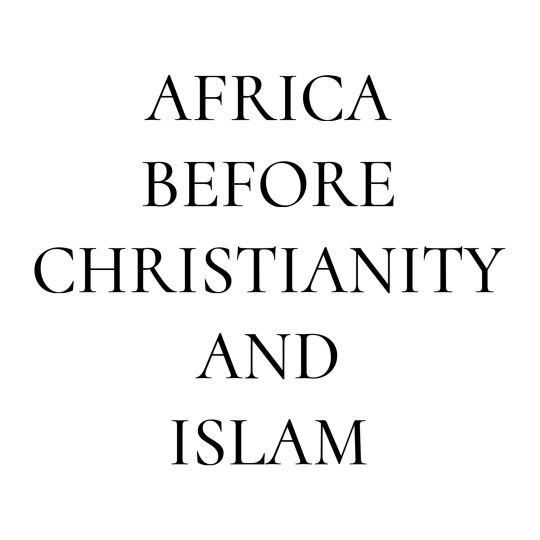
Africa has been very rich even before colonialism
The truth you should know about African
Blacks know your history and divinity
They gave us the Bible and stole our natural resources
Community and Social Cohesion: Traditional African religions often emphasized communal values, fostering a sense of belonging and mutual support within the community. Rituals and ceremonies were communal events that strengthened social ties.
Respect for Nature: Many African traditional religions were deeply connected to nature, promoting a harmonious relationship with the environment. This connection often led to sustainable practices and a respect for the natural world.
Ethical Guidelines: These religions often included moral and ethical guidelines that governed interpersonal relationships. Concepts such as honesty, hospitality, and respect for elders were commonly emphasized.
Cultural Identity: Traditional African religions played a crucial role in shaping cultural identity. They provided a framework for understanding the world, explaining origins, and passing down cultural practices through rituals, myths, and oral traditions.
Islam reached Nigeria through a combination of trade, migration, and cultural interactions. The trans-Saharan trade routes were crucial in bringing Islam to the region. Muslim traders from North Africa and the Middle East ventured into West Africa, establishing economic ties and introducing Islam to local communities.
The city-states along the trade routes, such as Kano and Katsina, became significant centers for Islamic influence. Merchants not only engaged in commercial activities but also played a role in spreading Islamic teachings. Over time, rulers and elites in these city-states embraced Islam, contributing to its gradual acceptance.
Additionally, the spread of Islam in Nigeria was facilitated by the activities of Islamic scholars and missionaries. Scholars known as clerics or Mallams played a key role in teaching Islamic principles and converting people to Islam. They often established Quranic schools and engaged in educational activities that promoted the understanding of Islamic teachings.
Military conquests also played a part in the expansion of Islam in Nigeria. Islamic empires, such as the Sokoto Caliphate in the 19th century, emerged through conquest and warfare, bringing Islam to new territories. The Sokoto Caliphate, led by Usman dan Fodio, sought to establish a strict Islamic state based on Sharia law.
Overall, the spread of Islam in Nigeria was a gradual process influenced by trade networks, migration, the activities of scholars, and, at times, military expansion. The interplay of these factors contributed to the integration of Islam into Nigerian society, shaping its cultural and religious landscape.
In the vast tapestry of Africa's rich cultural heritage, herbal traditional healing stands out as a profound and time-honored practice. African herbal traditional healers, often known as traditional or indigenous healers, play a vital role in the healthcare systems of many communities across the continent. Their practices are deeply rooted in the natural world, drawing on centuries-old wisdom and an intimate understanding of local flora.
African herbal traditional healers are custodians of ancient knowledge, passing down their expertise through generations. They serve as primary healthcare providers in many communities, addressing a wide range of physical, mental, and spiritual ailments. The healing process involves a holistic approach, considering the interconnectedness of the individual with their community and environment.
One of the hallmark features of African herbal traditional healers is their profound knowledge of medicinal plants. These healers have an intricate understanding of the properties, uses, and combinations of various herbs. Passed down through oral traditions, this knowledge is often a well-guarded family secret or shared within the apprentice-master relationship.
The methods employed by herbal traditional healers encompass diverse approaches. Herbal remedies, administered as infusions, decoctions, or ointments, form a significant part of their treatment. These remedies are carefully crafted based on the healer's understanding of the patient's symptoms, lifestyle, and spiritual condition. Additionally, rituals, ceremonies, and prayers are often incorporated into the healing process, acknowledging the interconnectedness of physical and spiritual well-being.
African herbal traditional healers frequently integrate spiritual elements into their practice. They believe that illness can be a manifestation of spiritual imbalances or disharmony. Through rituals and consultations with ancestors or spirits, healers seek to restore balance and harmony within the individual and the community.
Herbal traditional healers are integral to the social fabric of their communities. They often serve not only as healers but also as counselors, mediators, and keepers of cultural traditions. Their practices are deeply intertwined with community life, contributing to the resilience and cohesion of African societies.
While herbal traditional healing holds immense value, it faces challenges in the modern era. The encroachment of Western medicine, issues related to regulation and standardization, and the potential exploitation of traditional knowledge pose threats to this practice. However, there is also a growing recognition of the importance of integrating traditional healing into mainstream healthcare systems, leading to collaborative efforts to preserve and promote this valuable heritage.
African herbal traditional healers are bearers of an ancient legacy, embodying a profound connection between humanity and the natural world. Their healing practices, rooted in herbal wisdom and spiritual insights, offer a unique perspective on healthcare that complements modern medical approaches. Preserving and respecting the knowledge of these healers is not only crucial for the well-being of local communities but also for the broader appreciation of the diverse cultural tapestry that defines Africa.
#life#animals#culture#aesthetic#black history#history#blm blacklivesmatter#anime and manga#architecture#black community
120 notes
·
View notes
Text
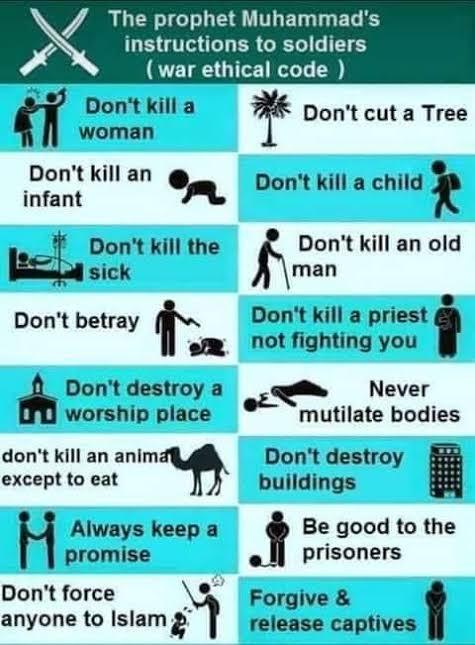

Islam will never be terrorists because there is so much hadiths and ethics about peace.
Only terrorists like UK, France, USA and Israel break these stuffs. They are furthest from peace.
Islam means religion of peace, it always been.
Ash-hadu an la ilaha illa Allah, Wa ash-hadu anna Muhammadan Rasulu-Allah.”
“I bear witness that there is no God but God (Allah – i.e. there is none worthy of worship but Allah), and Muhammad is the Messenger of Allah.”
You only need to say these to convert to Islam.
#islam#gaza#palestine#free palestine#free gaza#social justice#war#religion#peace#united states#france#united kingdom
230 notes
·
View notes
Note
kind of a hot take and maybe a bit offensive and blasphemous: confucianism was? is? kinda... off putting,, i find it weird that this guy existed in a point in time irl, and now we've come to think of him as a god figure?? he was real, and was probably a normal dude who got some different ideologies that people supported, and then now there's a religion. it's sus, not like muhammad from islam or moses from the bible, we have no tangible records that those people existed at all, or if they were of real people they dont have dates and times or documentation besides the scripture. perhaps this is something unique to china in the sense that their religions kind of have dates and that existence is not just confined to religious scripture if you know what i mean?? laozi, the founder of taoism, possibly exists in some accounts, and in others he is immortal, but its possible to think the guy existed.. idk sorry if this makes no sense to you.. i'm not even going to open the can of worms that is cultural minorities and their religions that i do not have the authority to even speak of knowledgeablely?? china is a melting pot of socio-cultural stuff i couldnt possibly understand without actually being there and i acknowledge that as an agonostic diaspora with one lone braincell that blasts rasputin all the time
actually wouldnt it be funny if elon musk started his own religion like confucius or whatever i think that would be funny i wouldnt call it a religion itd be a cult and an mlm simultaneously
This took a hot second to reply to because I went down oh so many an unnecessary side quest. But is it really a reply from me if I don't talk about something else instead?
--
I am going to put this in the nicest most neutral way possible because a) I got nothing going on at this particular time, and
b) to your credit, I feel like you could hear yourself in your head sounding dumb as hell but just decided to hit snooze on those alarm bells and sent me this ask instead of turning to google first:
confucianism was? is? kinda… off putting,, i find it weird that this guy existed in a point in time irl, and now we've come to think of him as a god figure??
Confucius (Kongzi) did not start a religion. Confucianism is a school of philosophy first and foremost. He may be somewhat mythologised as a major historical figure, sure, but his primary influence is that of a philosopher and as the "father of Chinese ethics". He is revered as a great thinker, not a god. Comparable example: Socrates.
Confucianism is not a religion the way you might be thinking about it. There may be folk religion/religious practices that go into it, as Confucianism in Chinese society is heavily blended with aspects of folk religion, Buddhism, and Daoism, but Confucianism is not like Christianity where the namesake was/is deified by its followers.
In fact, fun fact, this was so much so the reality that was a point of criticism against Jesuit missionaries in the Ming Dynasty and perhaps a contributing factor (in addition to fundamental culturally-based world view differences) for why the Jesuits failed so hard at converting the Chinese masses to Catholicism/Christianity; they would try to explain Jesus in terms of Confucius teaching, and in turn, Confucius, which those who rejected the Jesuit teachings found incredulous.
---
Side note time! when it comes to Confucius and what he said about religion/spirituality,he's often quoted as saying "敬鬼神而远之", "respect gods and demons/spirits from a distance", which, fun fact, Matteo Ricci (Jesuit missionary) uses in an argument to piggyback off the Chinese understanding of spirits to explain the Holy Spirit (i.e, the more important spirit to be worshipped who, unlike ancestor (spirit) worship, is the key to salvation) in his book "The True Meaning of the Lord of Heaven", written in Chinese. He points to the quote by Confucius as paradoxical because Confucius confirms the existence of spirits and encourages ancestor worship but also says to distance spirits, which, from Ricci's POV makes no sense if the point of ancestor worship is to curry favor with the spirits.
故仲尼曰:「敬鬼神而远之。」彼福禄、免罪非鬼神所能,由天主耳。而时人谄渎,欲自此得之,则非其得之之道也。夫「远之」意与「获罪乎天,无所祷」同,岂可以「远之」解「无之」而陷仲尼于无鬼神之惑哉?(source, 581)
So Confucius said: "Respect gods and demons/spirits from a distance". Happiness, position, and longevity and absolution [of sin] can only be handled by God. Yet contemporaries flatter [the spirits of ancestors] to obtain their [favor], but this is not the way to do it. This "from a distance" and "when you sin against Heaven, [there is] no one to pray [to]" are the same. How could "from a distance" and "there is no [gods and demons/spirits" trap Confucius in [the puzzle] that there are no gods or demons/spirits?
(^rough translation)
What I feel he takes out of context is that in the source of the idiom, Confucius is responding to a student who is asking him what the meaning of knowledge/wisdom/intelligence is. His full response is "务民之义 敬鬼神而远之 可谓知矣", "The meaning is to serve the people. Respect gods and demons/spirits from a distance—this could also be called wisdom". Confucianism generally holds that ancestor worship and similar rituals are necessary to society but that religious fanaticism and superstition should be discouraged. To Confucius, worship to spirits based on etiquette (which is respectful) are important to creating a stable and peaceful society. Devout belief/zealotry/fanaticism and indulgence in gods/demons/spirits/superstition is profane, so one should keep their distance and stick to rational respect for spirits (ritual). This is how Confucianism can actually be compatible with Christianity, although from Ricci's standpoint, he sees contradictions in Confucius because to him, ancestor worship to curry favor rather than worship to god IS the superstitious behavior and is blasphemous in the face of his god.
Fun food for thought aside, if you're wondering: Jesuits mostly got for milked for hundreds of years for their knowledge of things relating to science and math, which the Chinese considered as being part of knowledge that was once known but then lost in earlier dynasties due to political instability. Then ironically their favor began to decline when the Manchus instated the the Qing dynasty and in an effort to obtain more support from their Han subjects, adopted Confucianism philosophies more strictly.
---
Basically, most of your vague questions here could probably be cleared up if you read up more on what Confucianism actually is and what its relationship to Chinese society is.
I can understand how this might be confusing if you are diaspora but grew up agnostic and only have the vague framework of, let's face it, Christianity in western society to base your understanding of religion off of, but I don't think it's thaaaaat unique to China for historical figures to be mythologised, either as the center of religions, folk religions, folk lore/legend, philosophies, or religious philosophies. Siddhartha Gautama and Jesus of Nazareth, for example. The Catholic saints. (Edit: also, Muhammad did exist historically and there's decent evidence to suggest that Laozi did as well, though these were not their birth names most likely).
#text#answered ask#also elon musk is already basically a cult of personality#and unless he finds a magically unscathed new scripture in a burning tesla i don't see him becoming a religious founder any time soon#long post#孔子#religion#additional fact i forgot to add but won't edit in bc it's not that important: not only did manchu adherence to confucianism cause#the decline of jesuit influence,the pope of the time banned ancestral worship by chinese catholics which eventually led to the expulsion of#jesuit missions in china#and the decree wasn't reversed until like 200 years later#so they basically played themselves
495 notes
·
View notes
Text
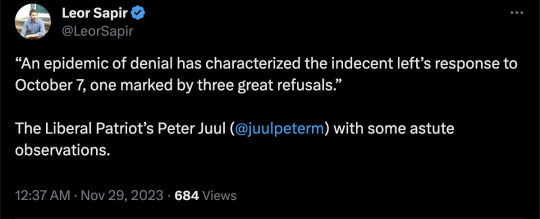
By: Peter Juul
Published: Nov 28, 2023
More than twenty years ago, the philosopher Michael Walzer famously asked whether or not there could be a “decent left.” After seeing the left’s reaction to the heinous October 7 terrorist atrocities in Israel, the answer is clearly no, there is no decent left—and we shouldn’t expect one to come into being any time soon.
It seemed that this indecent left had gone into remission with Russia’s invasion of Ukraine in February 2022. Outside a subset of inveterate anti-American ideologues, it was left to self-proclaimed realists to make the case for letting Moscow’s aggression against Ukraine stand—or, failing that, negotiate a settlement that would reward the Kremlin with chunks of Ukrainian territory. Indeed, a number of individuals affiliated with the so-called “restraint” school of foreign policy disassociated themselves from their erstwhile comrades while Democratic political leaders brutally smacked down half-baked calls from progressives to negotiate away Ukrainian sovereignty on terms favorable to Vladimir Putin.
But the indecent left roared back to life with a vengeance almost immediately after October 7, excusing and “contextualizing”—and sometimes outright denying—deliberate mass murder, rape, and kidnapping of ordinary Israeli civilians and foreigners. Outright anti-Semitism permeated the indecent left’s reaction to the Hamas terror attacks from the start, with a number of left-wing activists, academics, and intellectuals alike either celebrating or apologizing for the pogrom as soon as it occurred. At best, the left issued impotent calls for an immediate ceasefire that amounted to demands that Israel do nothing after 1,200 of its citizens were brutally massacred and another 240 or so taken hostage by Hamas and its allies.
If anything, the pathologies Walzer described two decades ago have only gotten worse. This is not a political movement that wants to think seriously or coherently about the war between Israel and Hamas or foreign policy and armed conflict more generally; as Walzer wrote twenty years ago, “ideologically primed leftists were likely to think that they already understood whatever needed to be understood.” An epidemic of denial has characterized the indecent left’s response to October 7, one marked by three great refusals.
A refusal to deal with the problem at hand: what to do about Hamas?
Many ceasefire calls mean well: ordinary people are understandably appalled by the death and destruction and quite reasonably just want it to stop. While this humanitarian sentiment is commendable, it fails to address the question at the heart of the current conflict: what to do about Hamas in the wake of October 7? Other much-touted ceasefire calls from politicians like Sen. Jeff Merkley (D-OR) essentially amount to terms of surrender for Hamas—immediate release of all hostages, giving up arms, and relinquishing control over Gaza. Likewise, the hostage release deal the Biden administration and Middle East partners brokered between Israel and Hamas only temporarily pauses the fighting.
Most immediate ceasefire calls coming from the indecent left essentially call for Israel to do nothing in response to October 7. Occasionally they come with provisions requiring Hamas release the hostages it took during its attack, but typically they amount to demands for a unilateral Israeli ceasefire without any explicit reciprocity from Hamas to, say, stop firing rockets into Israeli cities. Worse, they fail to take into account repeated threats by Hamas leaders to carry out October 7-style pogroms over and over again, much less the terrorist group’s long-standing, recently restated objective of destroying Israel itself. Since October 7, it’s obvious that many on the indecent left would have no problem with that outcome.
When asked what Israel—or America and the world at large—should do about Hamas after the cruelty of October 7, the indecent left’s repeated calls for an immediate ceasefire make clear that its answer is, at best, “nothing.” There may not be any good answers to this question, but “nothing” remains a grossly inadequate response.
A neo-Orientalist refusal to take either Palestinians or Israelis seriously
By and large, the indecent left has also demonstrated a remarkable lack of curiosity about either Palestinian or Israeli society and politics. It’s part and parcel of what TLP’s Brian Katulis dubbed neo-Orientalism: the use of nations and people overseas as props in America’s own domestic political debates. In particular, the indecent left spouts simplistic slogans while it professes “great concern and sympathy for the people of the region, while remaining largely indifferent to the diversity of backgrounds and perspectives within particular countries and societies.” That’s especially acute when it comes to discussions of Israel and the Palestinians, where the indecent left attempts to force the conflict into its own parochial ideological frameworks of “decolonization,” “white supremacy,” and “systemic racism.”
In other words, the indecent left thinks it already knows everything it needs to know about any given conflict—and especially any conflict that involves Israel. While “decolonization” provides the indecent left with a marginally coherent ideological framework, it amounts to little more than a “historically nonsensical” but nonetheless toxic stew of Soviet-era propaganda, half-baked academic theories, and contemporary identity politics. That includes the vogue to blame anything and everything on a mystical, all-pervasive white supremacy of which Israeli Jews somehow bizarrely partake. Why should the indecent left engage with the particularities of Palestinian politics or even give so much as a second glance to Israeli society when its ideology already gives it all the answers it needs?
As a result, the indecent left engages very little with actual Palestinian politics and society. It refuses to grant Palestinians any real agency and therefore refuses to acknowledge any real politics among Palestinians themselves, much less the fact that Hamas has repeatedly put forward an openly genocidal program or that it violently suppresses dissent among the Palestinians under its authority. Instead, many on the left fantasize about a single binational state in what was once the British Mandate of Palestine—something few Palestinians actually favor. Other leftists endorse slogans calling for a single Palestinian Arab state, but either way few of them actually delve into the complex power dynamics within Palestinian society—including those factions that don’t respect the basic rights and freedoms of a wide range of people.
If indecent leftists generally fail to engage with Palestinian politics and society in any meaningful way, they actively avoid any sort of real engagement with—or even understanding—of Israeli society and politics. At best, the indecent left ignores Israeli society and politics; at worst, it views Israeli society as somehow counterfeit. Other segments of the indecent left, especially in academia, actively discourage any engagement with Israelis and Israeli institutions. With zero understanding of Israeli society and politics, it cannot understand Israeli fears or motivations in any real way. The indecent left doesn’t know anything about Israeli society, and it doesn’t want to know anything about it.
A refusal to make elementary—if difficult—moral and ethical distinctions
In its rhetoric and analysis of the war between Israel and Hamas, the indecent left frequently equates the deliberate and premeditated murder, rape, and kidnapping of ordinary civilians with the inadvertent and unintentional deaths of civilians in what appear to be otherwise legitimate and legal military operations. Here as elsewhere, the left refuses to make what Walzer calls “one of the most basic and best understood moral distinctions: between premeditated murder and unintended killing.” At some fundamental level, many on the indecent left understand this distinction—as seen by the strenuous effort to portray just about any and every Israeli military action as unlawful and illegitimate by definition.
It may well be the case that the Israeli military has played fast and loose with the laws of war or committed war crimes in its war against Hamas. The sheer amount of ordnance dropped on Gaza between October 7 and the start of the Israeli ground offensive roughly three weeks later remains stunning—but it’s not necessarily illegal. It’s entirely legitimate and very much appropriate to question how well or how seriously the Israeli military takes its obligations to protect civilians, but as Walzer points out it’s impossible for any military to fight a war without putting civilians at risk. The Israeli military can and should probably do a better job protecting civilians, but it’s unrealistic to expect any war to end with zero civilian casualties.
By contrast, the indecent left remains either silent or in denial about blatant Hamas war crimes. It’s been an open secret for well over a decade that Hamas uses hospitals, schools, mosques, and other protected civilian buildings and facilities as command centers and bases for operations against Israel; sources ranging from the New York Times and PBS to non-governmental organizations typically unsympathetic to Israel like Amnesty International and even UNRWA attest to this fact. It’s not surprising to see the maze of tunnels uncovered beneath the Shifa hospital complex, nor is it shocking to see that Hamas brought hostages seized on October 7 to this medical facility. These Hamas abuses don’t even cover the deliberate and premeditated targeting of civilians for murder and rape on October 7 itself.
Then there’s the moral equivalence many on the indecent left have drawn between Israeli hostages held by Hamas and Palestinians jailed by Israel. There are many flaws and abuses in the way Israel treats detained Palestinians (particularly in East Jerusalem and the West Bank), but it’s hard to know what drives people to try and establish a moral equivalence between a four-year-old abducted by Hamas after terrorists killed her parents and a failed car bomber. However, that’s typical of an indecent left that tears down posters of hostages held by Hamas after October 7.
In its failure to make difficult but necessary moral distinctions, the indecent left contributes in its own way to the erosion of both the laws of war and the idea of crimes against humanity. It diminishes the force of both while giving the perpetrators of actual war crimes and atrocities effective political and moral cover. If there are no relevant distinctions between legal and legitimate actions in war and illegal and illegitimate ones—much less between legal and legitimate military operations and deliberate atrocities like October 7—it simply makes war even more brutal and appalling crimes against humanity more likely.
* * *
The pathologies of the indecent left burst out into the open once again after October 7, but they’ve been present in large swathes of the left for decades now. It’s difficult to escape the conclusion that these pathologies are inherent to and embedded in the left, and that no amount of argumentation or persuasion will eliminate or mitigate them. There are many decent leftists, but there is no decent left.
What should liberals and decent leftists do, then?
First, recognize that the indecent left is not your friend in any way, shape, or form. Indeed, the indecent left sees liberals and decent leftists—not conservatives or right-wing populists—as its primary adversaries. Even when there are ostensible areas of agreement, the underlying analysis and motivations and goals of the indecent left stand at odds with those of the broader center-left. It may not seem like much, but it’s important for mainstream liberals and decent leftists to understand this basic fact.
As a corollary, it’s important to note that the indecent left remains a small faction in American politics—it’s a paper tiger that garners excessive attention through activity on social media platforms and destructive political tactics. Different polls use different definitions and give different results, but the “progressive left” amounted to just six percent of the population in a 2021 Pew poll and eight percent in the 2018 Hidden Tribes poll.
Next, quarantine the indecent left. Much as mainstream liberals and decent leftists did in the late 1940s, today’s liberals and decent leftists must establish intellectual and political firewalls against the indecent left. That’s easier said than done, especially given the structure of contemporary center-left politics; unions and political parties that once filtered out bad-faith actors and indecent politics have weakened enormously in the intervening decades. Many of the same problems that plague domestic politics—an overreliance on college-educated professionals from foundation-funded non-profit institutions to staff government offices and agencies, for instance—likewise make it more difficult to combat indecent leftists on foreign policy.
Finally, liberals and the decent left need to articulate their own vision of foreign policy. The Biden administration and others on the mainstream center-left have been slowly groping their way toward this vision, particularly after the Russian invasion of Ukraine in February 2022. But liberals and the decent left need to accelerate their own efforts to establish a foreign policy that stands in opposition not only to the indecent left but the isolationist America First right and the technocratic approach of the post-Cold War era. It’s an urgent task that can no longer be postponed.
Liberals and decent leftists did it once before, albeit under vastly different circumstances. But that should give us hope that we can do it again today.
#Peter Juul#indecent left#hamas supporters#antisemitism#liberalism#liberal ethics#liberal values#islam#islamic terrorism#hamas#hamas terrorism#moral confusion#illiberalism#religion is a mental illness
7 notes
·
View notes
Text
I'm still surprised that I'm ever surprised by Viv's cultural/mythological knowledge and ethics. I've known her to be pretty tasteless and bad at this for years. I guess, my real thought, is how on earth her fans couldn't have known about this. How literally NO ONE in her circle ever knew or said anything/recommended a sensitivity reader ONCE.
--Sensitivity Readers, despite the name, aren't overly sensitive or prudish or totalitarian. You hire them to ask how your story looks/feels and if there is anything abt your story which you don't think is appropriation, but others MIGHT, which is especially important w it comes to portraying foreign concepts, customs, basically anyone else's life experience that isn't yours. And yeah, you go to them for fantasy that "isn't political" because if you know anything about fantasy as a genre, you know there is a lot of intentional to unintentional coding and stereotyping (well that and, you know, portraying cultures and religions that are not your own).
The way Helluvaverse stans are SO quick to turn down any complaints...it's really revealing but also really shocking. Just...how...
How do you NOT know that long/pointy/hooked noses are associated with racist stereotypes? Were you even paying attention to the Harry Potter discourse or did you seriously not think anything was problematic abt that series until 2020?
How do you NOT know that voudou practitioners (not universally) were not happy with Princess and the Frog? You know there were, right? There's backlash/controversy whenever Disney tackles race and culture.
How do you NOT know about bl00d l*bel and greed and how they're antisemitic stereotypes and maybe AVOID making characters coded to be Jewish cannibals and/or greedy.
How do you claim to be a fan of Abrahamic demonology but not also be an (at least passing) scholar of the religions that demonology comes from? Christianity, which is where a lot of our modern idea of demons and devils and hell is based on, is chop full of stuff that's worth your time to study. No; it's not lame or converting you to give it a passing glance. There are so many secular religious scholars who love this shit and make it fun. Then maybe, if you branch off and find people who are interested start depicting things from Judaism and Islam with HELP.
srry I just saw something on twitter where someone was seriously arguing Viv should never had done research on how St. Peter should look. St. Peter is a religious figure, he should be allowed to be depicted in any way-same as Jesus, but the complete lack of care in making him a beardless wonderbread christian pastor man is what's insulting.
tl;dr: Yes, Vivienne- you CAN appropriate Christianity. Also, you should have known that depicted voudou, Judaism and other religions is appropriation w you're NOT part of those groups and done some research.
#cw: mentions racism#vivziepop critical#hazbin hotel critical#if you love dante's inferno or paradise lost then GREAT#but oh my god#KNOW WHAT FIRE YOU'RE PLAYING WITH ESPECIALLY WHEN THAT SHIT ISN'T YOUR FIRE??!?!?!?
41 notes
·
View notes
Text


24 October 2023: Queen Rania of Jordan relayed the Arab World’s shock and disappointment at the world’s “glaring double standard” and “deafening silence” in the face of Israel’s ongoing war on the Gaza Strip, emphasizing that, despite the prevalent Western media narrative, “this conflict did not begin on October 7th.”
“Most networks are covering the story under the title of ‘Israel at War.’ But for many Palestinians on the other side of the separation wall and the barbed wire, war has never left. This is a 75-year-old story; a story of overwhelming death and displacement to the Palestinian people,” Her Majesty said. “The context of a nuclear-armed regional superpower that occupies, oppresses, and commits daily documented crimes against Palestinians is missing from the narrative.”
In a live interview with CNN’s Christiane Amanpour, conducted remotely from Queen Rania’s offices in Amman, Her Majesty explained that the people of Jordan are united in “grief, pain, and shock” in response to the staggering civilian casualties of the past 18 days of war.
“We've seen Palestinian mothers who have had to write the names of their children on their hands, because the chances of them being shelled to death – of their bodies turning into corpses – are so high,” Queen Rania said. “I just want to remind the world that Palestinian mothers love their children just as much as any other mother in the world. And for them to have to go through this, it's just unbelievable.”
Conveying Jordan’s position, Her Majesty stated that the country has been very clear that it condemns the killing of any civilian, whether Palestinian or Israeli. “That is Jordan's ethical, moral position. And it's also the position of Islam,” she said, explaining that the religion prohibits Muslims to kill a woman, child, or elderly person, to destroy a tree, or hurt a priest.
The Queen stressed that these rules of engagement should apply to all sides, arguing that Israel is committing atrocities under the guise of self-defense.
“6,000 civilians killed so far, 2,400 children – how is that self-defense? We are seeing butchery at a mass scale using precision weapons,” she said, “For the past two weeks, we have seen the indiscriminate bombardment of Gaza: entire families wiped out, residential neighborhoods flattened to the ground, the targeting of hospitals, schools, churches, mosques, medical workers, journalists, UN aid workers – how is that self defense?”
The Queen went on to state that many in the region view the Western world as complicit in this war through the support and cover that it provides Israel. “This is the first time in modern history that there is such human suffering and the world is not even calling for a ceasefire,” Her Majesty said. “Many in the Arab world are looking at the Western world as not just tolerating this, but as aiding and abetting it.”
Elaborating on the plight of Palestinian people, Her Majesty explained, “There are over 500 checkpoints scattered all over the West Bank. You have a separation wall, which is deemed illegal by the International Court of Justice, that has separated the territories into 200 disconnected enclaves. And you've seen the aggressive expansion of settlements on Palestinian land, and those have interrupted the territorial contiguity of the territories and has deemed an autonomous, independent Palestinian state not viable.”
The Queen also mentioned that Israel is in violation of no less than 30 UN Security Council resolutions, which “require it, and it alone, to act to withdraw from territories occupied in 1967, and to stop the settlements, the separation wall, and the human rights violations.” She also underscored that Israel has been designated as an “apartheid regime” by Israeli and international human rights organizations.
Commenting on military solutions to conflict, Her Majesty said: “Victory is a myth that politicians make in order to justify immense loss of life… There can never be a resolution except around the negotiating table. And there's only one path to this: a free, sovereign, and independent Palestinian state living side by side in peace and security with the state of Israel.”
The Queen also indicated that allies to Israel are doing it a disservice by giving it blind support. “Expediting and expanding the provision of lethal weapons to Israel is only going to expand this conflict. It’s only going to prolong and deepen the suffering,” she said.
Criticizing the role of the media in covering the current conflict, Queen Rania noted the double standard presented when Western interviewers demand that people representing the Palestinian side immediately issue condemnations, requiring them to “have their humanity cross-examined and present their moral credentials.”
“We don't see Israeli officials being asked to condemn, and when they are, people are readily accepted by [claiming] ‘our right to defend ourselves,’” she said. “I have never seen a Western official say the sentence: Palestinians have the right to defend themselves.”
The Queen also discussed the oppression of Palestinian expressions of solidarity in Western democracies, commenting that when people gather to support Israel, they are exercising their right to assembly, but when they gather for Palestine, they are deemed terrorist sympathizers or anti-Semitic.
“Freedom of speech is apparently a universal value, except when you mention Palestine,” Her Majesty said.
(Source: Petra)
68 notes
·
View notes
Text
Muslim pupils who expressed outrage after their teacher presented a Renaissance painting of nude women in class will be disciplined, France’s education minister has said.
A French teacher at the multicultural Jacques-Cartier college showed students the painting Diana and Actaeon by the Italian artist Giuseppe Cesari, which portrays a Greek mythology story in which the hunter Actaeon sees the goddess Diana and her nymphs bathing.
The work, which depicts a naked Diana and four female companions, is held at the Louvre museum in Paris.
Sophie Vénétitay, secretary general of the Snes-FSU secondary school teachers’ union, said: “During a French class, a colleague showed a 17th-century painting that showed naked women.”
“Some students averted their gaze, felt offended, said they were shocked,” said Ms Vénétitay, adding that “some also alleged the teacher made racist comments” during a class discussion.
A pupil’s parent sent an email to the school director saying that his son was prevented from speaking during that discussion and that he would file a complaint.
“We know well that methods like that can lead to a tragedy,” Ms Vénétitay told BFMTV news. “We saw it in the murder of Samuel Paty. Our colleagues feel threatened and in danger.”
Teachers at the Issou school said that pupils admitted lying about events in their art class but that the damage had been done.
“We’re dealing with vindictive parents who prefer to believe their children than us,” they said.
Gabriel Attal, the education minister, visited the school in person on Monday and later said that a disciplinary procedure would be launched “against the students who are responsible for this situation and who have also admitted the facts”.
A team would also be deployed to the school to ensure it adhered to the “values of the republic”, he said.
Staff at the Jacques-Cartier middle school in Issou, west of Paris, refused to work on Monday, saying they feared for their safety given the recent murders of two teachers by jihadi terrorists.
Dominique Bernard was stabbed to death by a Muslim man in his school’s playground in the northern town of Arras in October.
In 2020 a civics teacher, Samuel Paty was stabbed and beheaded by a terrorist in Conflans-Sainte-Honorine, 12 miles from Issou, after he showed his pupils a caricature of Mohammed in a class on free speech.
In an email sent to parents on Friday, teachers said they were exercising their right to stay away from classrooms over the “particularly difficult situation” and “an increase in cases of violence” as their daily reality.
Deteriorating discipline at the school
The school’s head teacher recently asked the education ministry for more staff and resources to deal with deteriorating discipline at the school, saying that fights and death threats and threats of rape had become common among pupils.
“We feel we are clearly in danger. We are supported by our direct superiors but not from higher up. This is a real call for help,” said one teacher.
Last week a Paris court convicted six teenagers over their role in events that led to the beheading of Mr Paty, who was their teacher at the middle school in Conflans when he was killed by Abdoullakh Anzorov, an 18-year-old of Chechen origin.
In another sign of school-religion tensions, the state this week said it would withdraw funding for the country’s biggest state-subsidised Muslim high school. In its teaching of Muslim ethics, the Averroes school, in Lille, was found to be violating French republican values.
On Tuesday, Jordan Bardella, leader of the hard-Right National Rally party, warned that “freedom of expression is under threat in France from an all-conquering political Islam that is imposing on our society its laws, its way of life and its prohibitions”.
39 notes
·
View notes